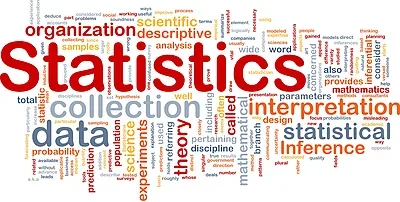This course has a reputation! However, it may be best not to be too impressed or intimidated by what you hear.
So what is statistics?
Statistics is the science of “decision-making”: Elementary statistics mainly uses common sense to evaluate or to make arguments supported by evidence, usually quantitative evidence. Quantitative data (usually numerical) can sometimes provide very persuasive evidence to support your arguments. Statistical techniques use some math tools, but not a lot, mainly to help form arguments, to make sense of data, and to measure or evaluate quantities that describe important problems or processes we experience. Sometimes we try to describe problems that affect the community and the public at large, such as public health and wellness, business topics, or other social media and viral phenomena. Statistics is a tool that can help us describe and analyze many real applications and experiences in this world, and help us make intelligent predictions or decisions based on that analysis. Thus, to give one very narrow example of one topic listed, “public health applications,” statistics may help address questions like, “At what point is the infection rate increasing most rapidly?” or “What is the most effective treatment for a particular disease?”, or, in other applications, “Which public health policy appears to be most effective in reducing homelessness/crime/poverty?” Or “How much money can I expect to save over this 7 year period? Will it be enough to reach my goals?”
While the course is challenging, the main challenge that students seem to experience is the reasoning and confidence with handling quantitative measures of data. It is a challenge to have confidence in your own judgment with mathematical concepts and thinking. Don’t worry, the course is designed to include a review of any prerequisite math material that you may have forgotten about or never quite learned very well. Plenty of great resources are also made available to help you, such as our great tutoring center, which I will also discuss with you.
What can you do? Be open to the fact that it is not true that people are either born with math ability or are not! Not true. The truth is that any math proficiency can be learned—it can be cultivated and strengthened with effort and good strategies, and by placing value on your own judgment about what makes sense and what does not make sense. I will speak a lot more of this as we introduce topics.
Learning from mistakes: Additionally, it is always helpful to hear honest feedback from you on what is confusing or intimidating so that we can tackle it as quickly as possible together. Further, I want you to know that I know (and utilize) the fact that making mistakes is an important part of learning, if the learning is done the right way. Yes, when mistakes are made, I know that real learning is happening. Mistakes can be your greatest teacher. Therefore, I am mindful, as should you be too, of the need to learn from mistakes—and in order to support this important aspect of learning, I will offer the opportunity to reflect upon mistakes, as well as opportunities to earn the right to gain partial credit for corrections of errors on selected assessments. Obviously, we want to move towards making less mistakes, but that can only happen if we accept mistakes as a normal and needed part of learning.
Connection to your career and life: Lastly, if this is your last required math course, perhaps you can also think of this as an opportunity to finally crush some of those annoying doubts and troubles about math that have haunted you for years, rather than just taking the class to “get this over with!” You can emerge this last time more confident than ever in your ability to apply mathematical thinking in your future career. We don’t study business applications exclusively, but rather a wide range of applications from the sciences, both scientific and social. I encourage you to share your interests as we cover content, so that you can make connections that are relevant for you.
This is the landing page for visitors to your site. It is a static Page on which most instructors add a welcome note, course information, and/or images and other media.



